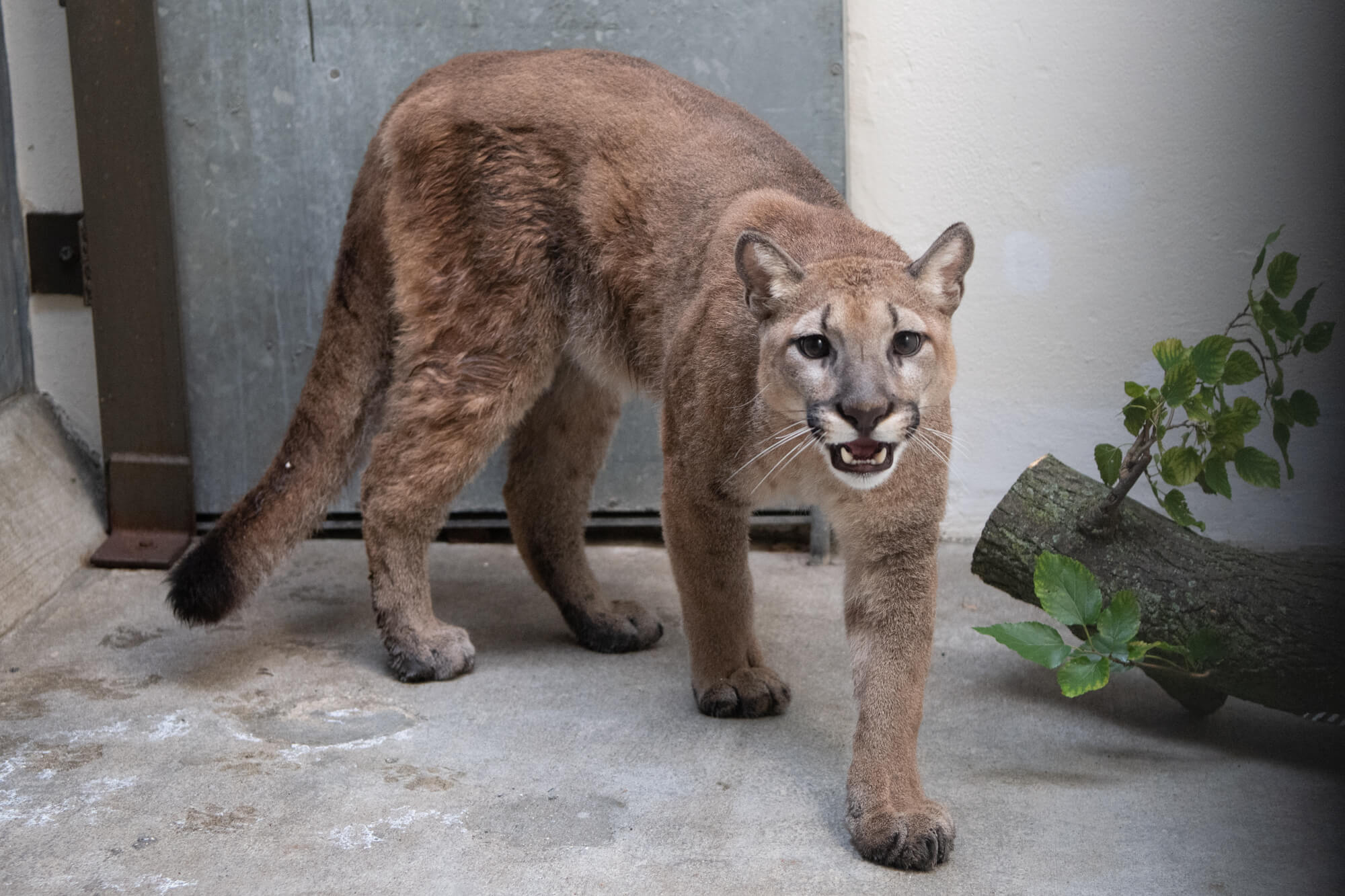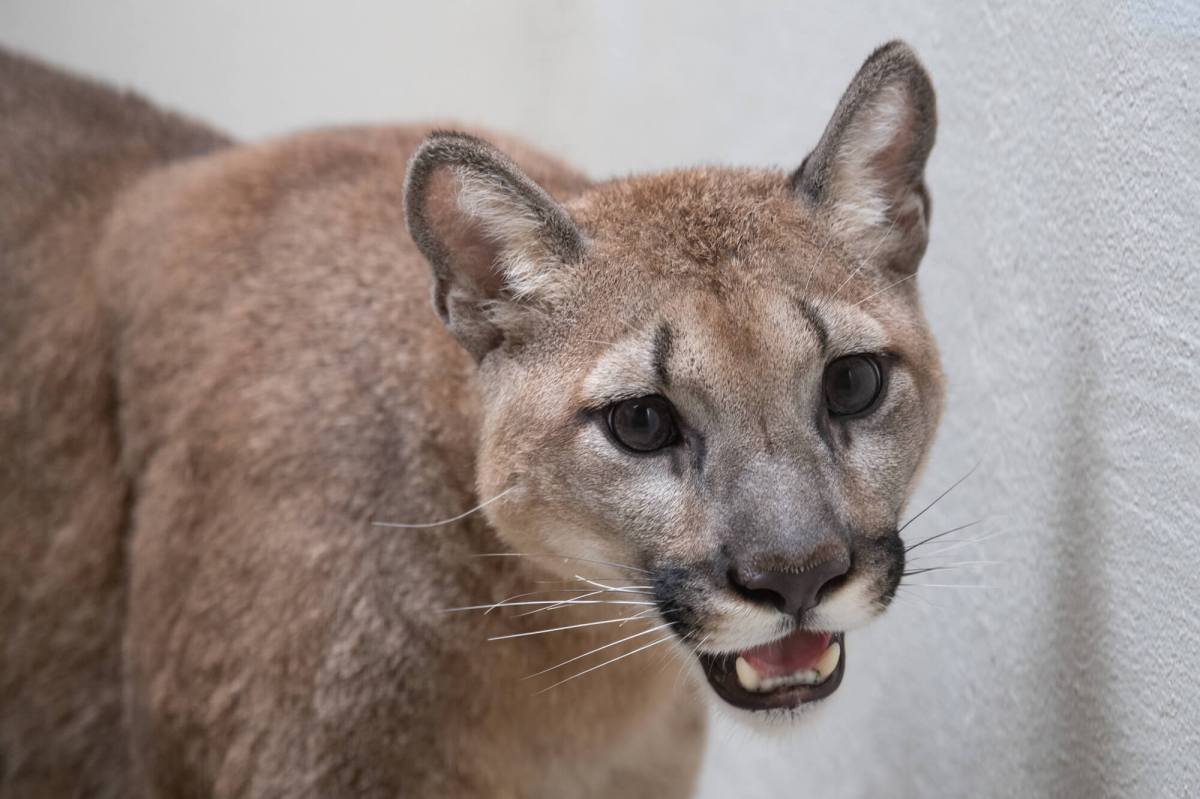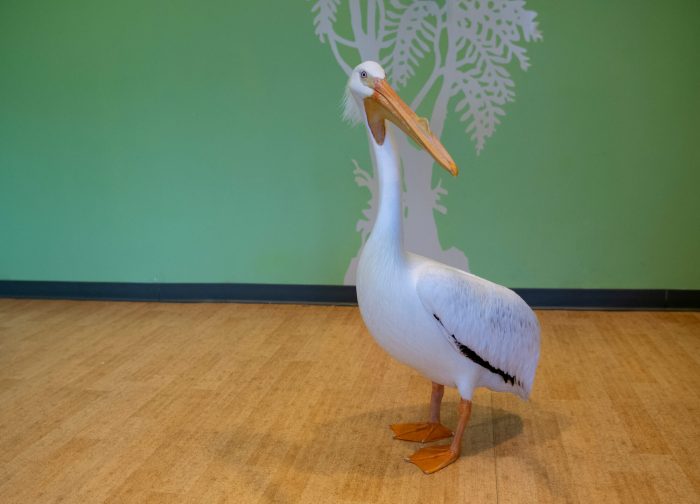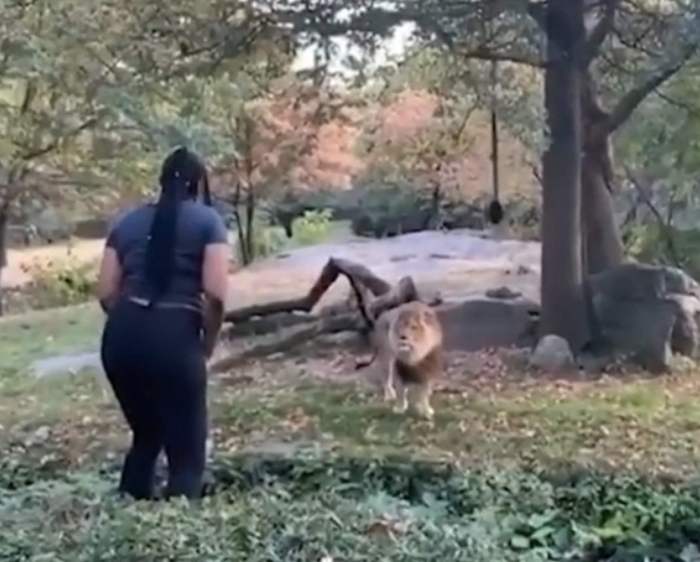An 11-month-old cougar that was removed from a New York City home last week is heading to her new home at an animal sanctuary.
The removal was facilitated by the Humane Society of the United States (HSUS), New York State Department of Environmental Conservation (NYSDEC), New York City Police Department (NYPD) and the Bronx Zoo. The HSUS was on scene when the owner surrendered the young 80-pound female big cat.
“I’ve never seen a cougar in the wild, but I’ve seen them on leashes, smashed into cages, and crying for their mothers when breeders rip them away. I’ve also seen the heartbreak of owners, like in this case, after being sold not just a wild animal, but a false dream that they could make a good ‘pet.’ This cougar is relatively lucky that her owners recognized a wild cat is not fit to live in an apartment or any domestic environment,” Kelly Donithan, director of animal disaster response for the Humane Society of the United States, who was on scene with the cougar and facilitated the transport, said. “The owner’s tears and nervous chirps from the cougar as we drove her away painfully drives home the many victims of this horrendous trade and myth that wild animals belong anywhere but the wild. We are thankful to the New York State Department of Environmental Conservation and everyone who was involved in dealing with this complex situation for helping make this rescue possible.”
The cougar was housed at the Bronx Zoo over the weekend and transported to Turpentine Creek, an animal sanctuary in Arkansas on Aug. 30.
“Wildlife like cougars are not pets,” said NYSDEC Commissioner Basil Seggos. “While cougars may look cute and cuddly when young, these animals can grow up to be unpredictable and dangerous. NYSDEC is thankful to our partners at the New York Police Department, the Humane Society of the United States, Bronx Zoo Wildlife Conservation Society, and Turpentine Creek Wildlife Refuge for their efforts to advance the surrender of this wild animal and transport it to a safe location.”

“We have witnessed countless wild animals kept in shoddy, unstable cages, and participated in rescues that resulted from animals escaping and roaming the streets,” Tanya Smith, Turpentine Creek Wildlife Refuge president, commented. “In these cases, the escaped animals are often killed, and people can be harmed. It’s as much of a public safety issue as it is an animal welfare issue. We are so happy we can provide a safe and proper environment for this cougar to be free without being at risk of causing harm or being harmed.”
This is the first time a New York resident has harbored a big cat in their home. In 2003, the NYPD removed an adult tiger from a Harlem apartment with the assistance of Bronx Zoo staff, and in 2004 a child in Suffolk County was attacked by his father’s pet leopard. Personnel from the Bronx Zoo periodically responds to emergency calls by providing antivenom when individuals with exotic snakes get bitten.
“The NYPD, working with the New York State Department of Environmental Conservation Police, the Humane Society of the United States and the Bronx Zoo was able to safely receive and remove an 80-pound cougar from a private home in the Bronx. I want to thank the officers from the Emergency Service Unit and the Animal Cruelty Investigation Squad who were there to ensure that the large cat was safely removed. The cougar was transferred with assistance from the Humane Society of the United States to the Bronx Zoo and is now headed to a sanctuary where the cat can receive the appropriate care. The case is currently under investigation and no further information is available at this time,” said Police Commissioner Dermot Shea.
In 2020, New York increased its regulation of ownership of wild animals. On the federal level, activists are calling for the passing of the Big Cat Public Safety Act. If signed into law, the Big Cat Public Safety Act would strengthen existing laws to prohibit the breeding and possession of big cat species such as lions, tigers, cheetahs and jaguars, except by qualified entities.
“A majestic species native to the United States and much of the Americas, cougars thrive in their natural habitats, not in a city home. Individuals and unqualified entities simply cannot meet these wild animals’ complex needs,” Sara Amundson, president of the Humane Society Legislative Fund, said. “The sad situation from which Sasha is being rescued is a textbook example of why Congress must, once and for all, pass the Big Cat Public Safety Act.”
“At the Bronx Zoo, we were glad to assist the agencies working to rescue this cougar and provide care and housing for her until her transfer. We have long opposed the private ownership of big cats as pets. Big cats in the exotic pet trade make no contribution to the conservation of their species,” Jim Breheny, director of the Bronx Zoo and executive vice president of the Wildlife Conservation Society Zoos & Aquarium, said. “These animals often end up in very bad situations, kept by private individuals who don’t have the resources, facilities, knowledge, or expertise to provide for the animals’ most basic needs. In addition to these welfare concerns for the animals, the keeping of big cats by private people poses a real safety hazard to the owner, the owner’s family and the community at large.”





































